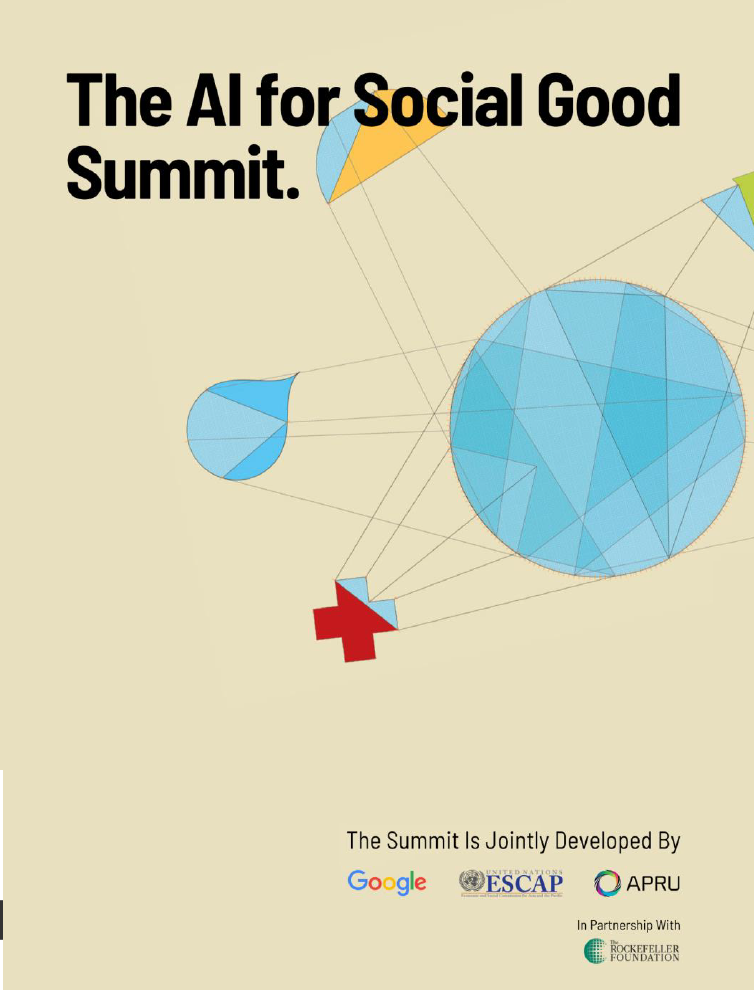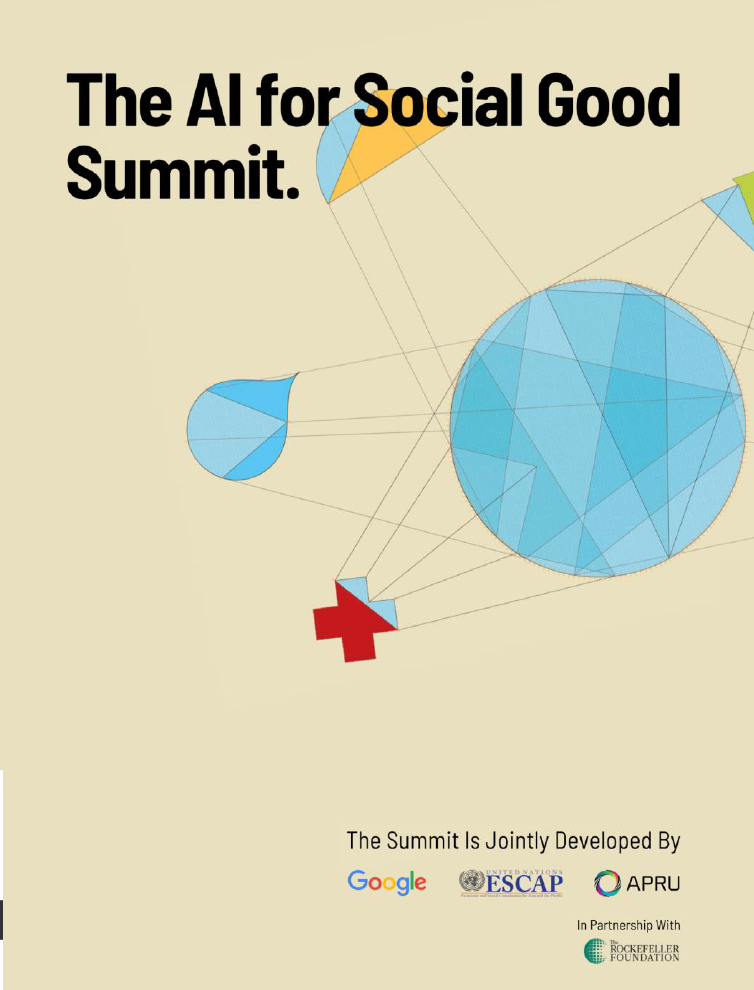Artificial Intelligence for Social Good
With artificial intelligence (AI) poised to become as widespread as the internet, its impact in Asia and the Pacific is expected to grow further. AI offers the possibility to provide a myriad of technological solutions to today’s complex challenges in achieving Agenda 2030 for sustainable development and can help societies “build back better” as they recover from the impacts of the COVID-19 pandemic.
In response to these opportunities, the United Nations Economic and Social Commission for Asia and the Pacific (ESCAP) and the Association of Pacific Rim Universities (APRU) with funding from Google.org developed the ‘AI for Social Good’ multi-stakeholder network. The network is supporting policymakers by developing insights on what capabilities and governance frameworks will be most supportive for leveraging AI effectively for social good.
Phase 1
In the first phase of this partnership, a total of 8 research projects were sponsored between 2019 and 2021 to explore the impact of AI on societies in the Asia-Pacific region and offer suggestions from the research community on how policymakers can encourage, use, and regulate AI for social good. The research findings were published in the Artificial Intelligence for Social Good report.
The results of the research were presented and discussed at the AI for Social Good Summit, a series of online investigative discussions, conversations, and policy briefings held in November 2020 with leading AI thinkers and doers from Asia and beyond.
Based on these discussions two policy briefs were produced to present Four Abilities for Governments to Leverage AI for Social Good and Seven Challenges to Govern AI.
Phase 2
Starting in 2022, the AI for Social Good network is seeking to support the development of country-specific AI governance frameworks and national capabilities to empower transparent ecosystems to develop AI solutions that tackle socio-economic challenges.
It will work with government agencies from the Asia-Pacific region, particularly Thailand and Bangladesh, to identify concrete policy challenges to use AI for social Good and provide valuable insights through tailored research.
In this second phase, the network will:
- Sponsor research papers responding to the identified need to address policy action.
- Conduct country workshops to discuss how research findings may be translated into policy action.
- Organize a regional summit to disseminate findings and insights at the regional level.
- Support potential opportunities for AI for Social Good research collaborations to develop solutions in key areas of need such as agriculture, sustainability, public health, and economic recovery.
Two calls for expression of interest have been put forward to support this work in Thailand and Bangladesh.



